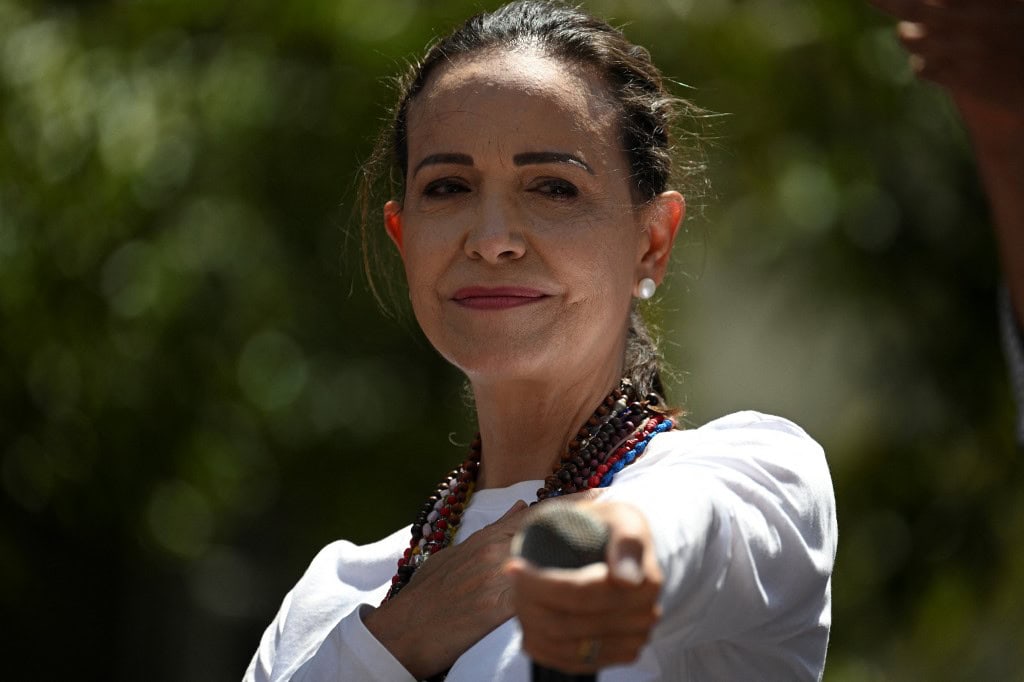The Norwegian Nobel Committee handed the 2025 Peace Prize to Venezuelan opposition leader María Corina Machado on Friday, sparking sharp words from the White House. Officials there accused the committee of favoring politics over real progress in global conflicts.
Machado, a 58-year-old politician from Caracas, heads the Vente Venezuela party. She has led efforts to push for fair elections and human rights in her country, facing down the government of Nicolás Maduro. The committee highlighted her role in building a non-violent movement that unites people against authoritarian rule. Her work has drawn attention across Latin America, where struggles for democracy often echo regional challenges.
In Washington, the response came fast. White House communications director Steven Cheung shared that the decision showed the Nobel group “puts politics over peace.” He pointed to President Donald Trump’s recent work on international deals, including a fresh agreement between Israel and Hamas in Gaza signed just a day earlier. Cheung added that Trump “has the heart of a humanitarian” and stands alone in his ability to drive major changes through determination.
Trump himself had voiced hopes for the prize in the days leading up to the announcement. Since taking office again in January, he has claimed credit for ending several conflicts worldwide. On Thursday, he called the Gaza cease-fire the eighth war he has resolved during his term. Speaking to reporters, Trump said, “Whatever they do is fine. I know this: I didn’t do it for that, I did it because I have saved many lives.”
Machado reacted quickly, sharing her thanks and tying the honor to broader goals. She dedicated the award to the people of Venezuela and to Trump, writing, “We are on the threshold of victory, and today more than ever we are counting on President Trump. Venezuela will be free!” Reports later confirmed that Trump spoke with her by phone, where she reportedly told him he deserved recognition for his support against Maduro’s regime.
This mix of praise and criticism highlights splits even within U.S. politics. Machado has strong backing from Latino leaders in Congress, many of them Republicans. Back in August 2024, a group of lawmakers—including then-Senator Marco Rubio, now Trump’s Secretary of State—sent an open letter to the Nobel Committee. They nominated her, calling her resistance “exemplary” in organizing peaceful pushes for democracy.
The letter, signed by Rubio and others like Rick Scott and Mike Waltz, came amid rising U.S. pressure on Venezuela. It praised Machado’s ability to rally support without violence, at a time when her country faced election disputes and international sanctions.
Trump’s team has kept up the focus on his foreign policy wins. The Gaza deal marks a step in ongoing Middle East talks, with the president positioning himself as a key mediator. Yet the Nobel nod to Machado shifts attention to Latin American issues, where U.S. involvement has grown under Trump.
For Venezuelans, the prize offers a boost to opposition morale. Machado’s movement has faced setbacks, including her disqualification from running in elections by Maduro’s government. Still, she remains a central figure, drawing crowds and international allies.
The White House insists Trump will press on with his agenda. “President Trump will continue securing peace deals, ending wars, and saving lives,” Cheung stated. As reactions pour in, the award underscores ongoing debates about what true peacemaking looks like in a divided world.
This decision comes at a tense moment for U.S.-Venezuela relations. With Trump’s administration backing opposition forces, Machado’s win could strengthen calls for change in Caracas. Observers in Latin America watch closely, as shifts there often ripple through the region.






